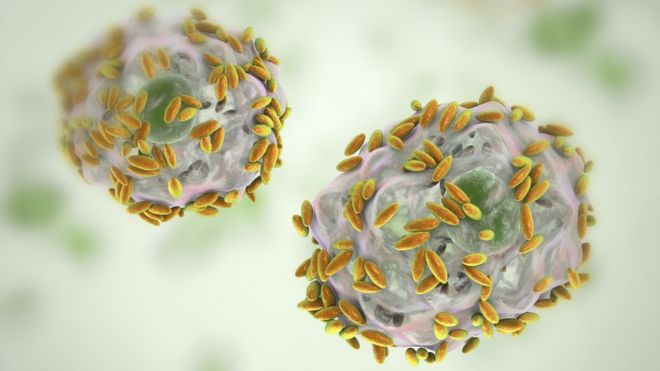Sylvester Newton, a Clinical Microbiology, and MPhil candidate with the Global Health and Infectious Diseases Research Group at the Kumasi Centre for Collaborative Research at KNUST has revealed that some livestock farmers in the Ashanti region have antibiotic-resistant bacteria in their nostrils.
“Out of the 184 healthy livestock farmers sampled, 9% harboured Methicillin-Resistant Staphylococcus aureus. 28% of the bacteria showed resistance to at least one antibiotic agent in three or more antimicrobial categories,” Sylvester revealed.
He shared these insights while speaking at the maiden Public Health Alliance for Genomic Epidemiology (PHA4GE) Conference held in Cavalli Estate in Cape Town, South Africa.
The Conference was on the theme, “Developing collaborative Bioinformatics solutions for Public Health & Beyond”.
Staphylococcus aureus (staph) is a type of bacteria found on people’s skin. Staph bacteria are usually harmless, but they can cause serious infections that can lead to sepsis or death. Methicillin-resistant Staphylococcus aureus (MRSA) is a cause of staph infection that is difficult to treat because of resistance to some antibiotics.
Sylvester further explained, “The study aimed to determine the prevalence of Staphylococcus aureus and Methicillin-Resistant Staphylococcus aureus (MRSA) in livestock farmers on commercial and smallholder farms in the Ejisu-Juaben Municipality and Asante Akim North District. This would help us describe their antibiotic resistance pattern.”
“You see, Staphylococcus aureus is one of the most important microorganisms that has increasingly become resistant to the most commonly used antimicrobials,” he added.
Sylvester Newton continued, “The carriage of resistant bacteria by people in close contact with animals such as livestock farmers has been widely reported. This could possibly lead to outbreaks on farms and within the community.”
“Unfortunately, few studies have reported on resistant pathogens among farmers in the Ashanti Region, Ghana. However, we are looking at how to curb this. We need to put in control measures to be able to prevent the spread of MRARS especially on livestock farms and in the communities,” he concluded.
The conference delved into a wide range of topics crucial to public health and genomics, including discussions on quality assurance in public health laboratories, harmonizing pathogen data collection, priority pathogens, one health, computational tools for pathogen surveillance, and other priority areas in bioinformatics and genomics.
The Public Health Alliance for Genomic Epidemiology (PHA4GE) is a global coalition actively working to establish consensus standards; document and share best practices; improve the availability of critical bioinformatic tools and resources; and advocate for greater openness, interoperability, accessibility, and reproducibility in public health microbial bioinformatics.
Latest Stories
-
I am not ready to sign any artiste to my record label – Kuami Eugene
14 mins -
Gov’t spokesperson on governance & security calls for probe into ballot paper errors
18 mins -
Free dialysis treatment to be available in 40 facilities from December 1 – NHIA CEO
31 mins -
NHIA will need GHC57 million annually to fund free dialysis treatment – NHIA CEO
37 mins -
MELPWU signs first-ever Collective Agreement with government
1 hour -
I’ve not been evicted from my home – Tema Central MP refutes ‘unfounded’ reports
1 hour -
After Free SHS, what next? – Alan quizzes and pledges review to empower graduates
2 hours -
Wontumi FM’s Oheneba Asiedu granted bail
2 hours -
Alan promises to amend the Constitution to limit presidential powers
2 hours -
Ghana to face liquidity pressures in 2025, 2026 despite restructuring most of its debt – Fitch
2 hours -
NPP’s record of delivering on promises is unmatched – Bawumia
2 hours -
Mahama: It’s time to dismiss the incompetent NPP government
2 hours -
‘It’s extremely embarrassing’ – Ernest Thompson on Ghana’s AFCON failure
2 hours -
Today’s front pages: Monday, November 25, 2024
2 hours -
T-bill auction: Government misses target again; interest rates continue to rise
2 hours

